Prized in China for its alleged health benefits for hundreds of years, nests made from swiftlets’ saliva are being mixed into coffee and cereal as the Southeast Asian producers of the delicacy seek to broaden its appeal, and their profit margins. The nests are among the world’s most expensive foods, selling for up to US$2,500 (RM9,100) a kg and the swiftlets that weave them are indigenous to Indonesia, Malaysia, Thailand and Vietnam. China consumes almost 90% of all bird’s nests, traditionally eaten in soup, creating an industry that last year recorded US$5 billion in sales and which executives expect to double by 2020. Companies such as Malaysia’s Swiftlet Eco Park, one of the country’s largest developers of swiftlet houses, want bigger gains by expanding their product line and market beyond China, where importers can often dictate the price.
“Ask anybody in the industry where is your market and they’ll say China and Hong Kong. Everybody is going there”, said group managing director Loke Yeu Loong. “We are looking at new markets, but if I sell raw bird’s nest to Europe or India, they don’t even know how to cook it”. Swiftlet Eco makes coffee, skin care, puddings and candies with bird’s nest. Loke declined to give specific sales figures but said the profit margin on some of these products was 10 times more than the raw nests. The company is also spending big on marketing bird’s nest as a health food in the Middle East, Europe and the US and plans to raise about US$30 million through an initial public offering and New York listing in the third quarter of this year. Southeast Asian swiftlets’ nests are particularly popular in the Lunar New Year festivities, which began in China last week, and are believed to be rich in nutrients that can help digestion, raise libido and improve the immune system.
“Ask anybody in the industry where is your market and they’ll say China and Hong Kong. Everybody is going there”, said group managing director Loke Yeu Loong. “We are looking at new markets, but if I sell raw bird’s nest to Europe or India, they don’t even know how to cook it”. Swiftlet Eco makes coffee, skin care, puddings and candies with bird’s nest. Loke declined to give specific sales figures but said the profit margin on some of these products was 10 times more than the raw nests. The company is also spending big on marketing bird’s nest as a health food in the Middle East, Europe and the US and plans to raise about US$30 million through an initial public offering and New York listing in the third quarter of this year. Southeast Asian swiftlets’ nests are particularly popular in the Lunar New Year festivities, which began in China last week, and are believed to be rich in nutrients that can help digestion, raise libido and improve the immune system.
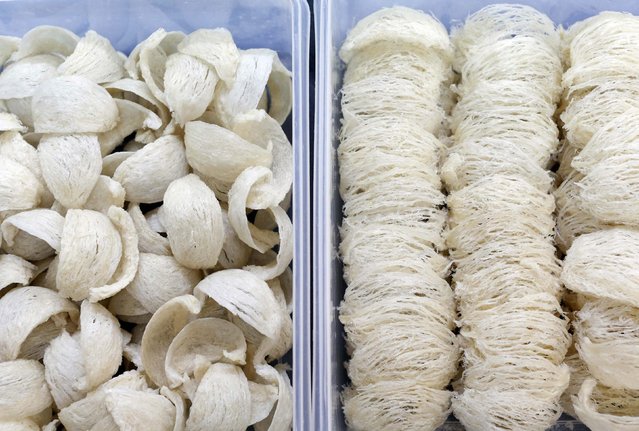
Two styles of cleaned bird's nest, Yan Zhan (L) and Su Zhan (R) await repacking at a processing plant in Kuala Lumpur, February 17, 2015. Prized in China for is alleged health benefits for hundreds of years, nests made from swiftlets' saliva are being mixed into coffee and cereal as the Southeast Asian producers of the delicacy seek to broaden its appeal, and their profit margins. The nests are among the world's most expensive foods, selling for up to $2,500 a kg and the swiftlets that weave them are indigenous to Indonesia, Malaysia, Thailand and Vietnam. (Photo by Olivia Harris/Reuters)
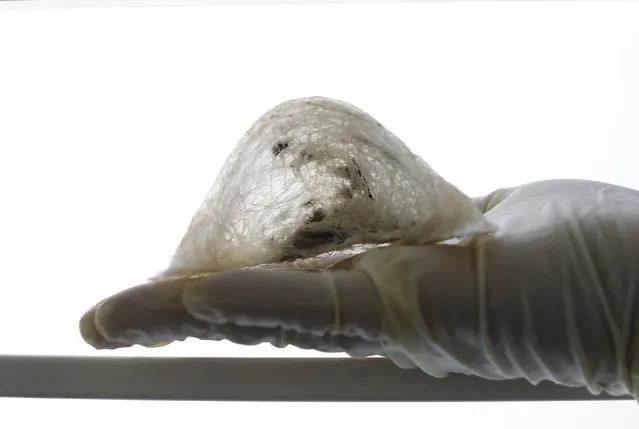
A worker poses with an unclean bird's nest at a processing plant in Kuala Lumpur, February 17, 2015. (Photo by Olivia Harris/Reuters)
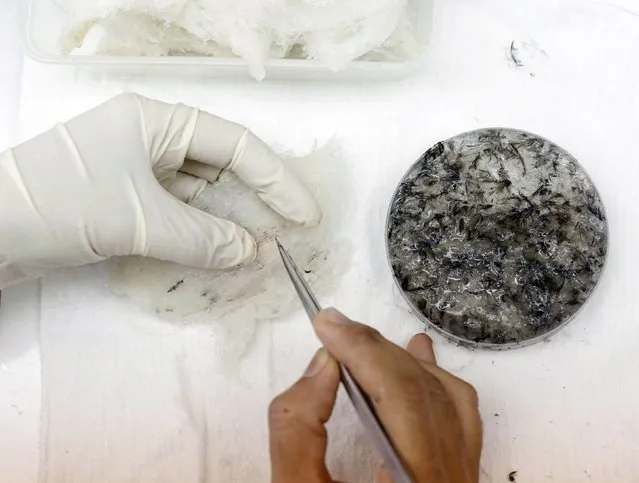
A worker uses tweezers to remove feathers from a bird's nest at a processing plant in Kuala Lumpur, February 17, 2015. (Photo by Olivia Harris/Reuters)
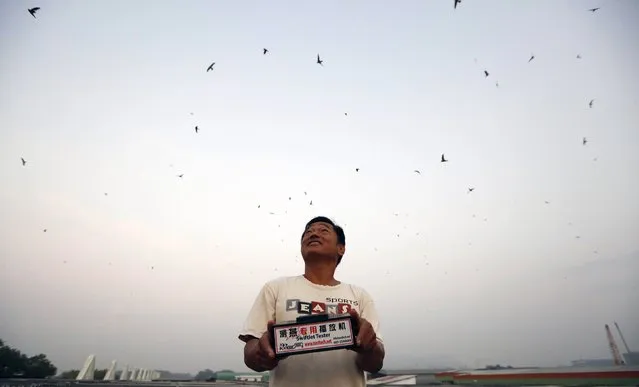
Caretaker Tan Jin Hong looks at swifts attracted by the bird songs played by a machine at the Swiftlet Eco Park in Perak, northern Malaysia, February 15, 2015. (Photo by Olivia Harris/Reuters)
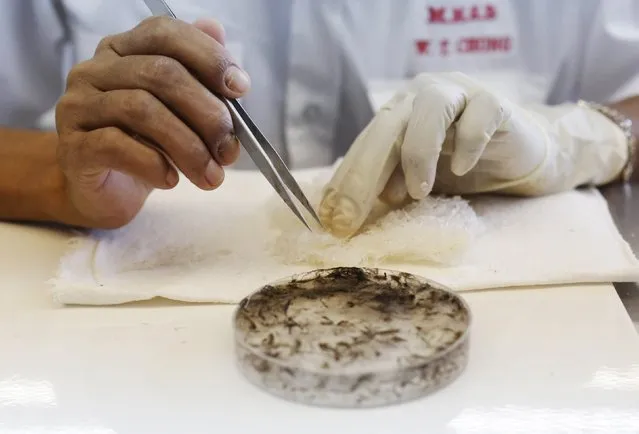
A worker uses tweezers to remove feathers from a bird's nest at a processing plant in Kuala Lumpur, February 17, 2015. (Photo by Olivia Harris/Reuters)
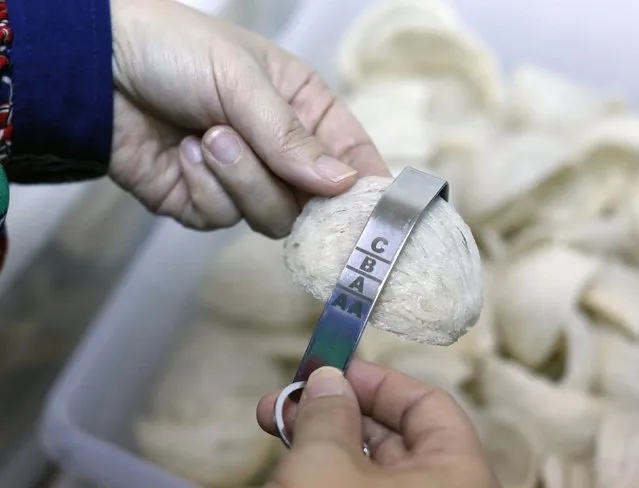
Clean bird's nests are sorted according to size at a processing plant in Kuala Lumpur, February 17, 2015. (Photo by Olivia Harris/Reuters)
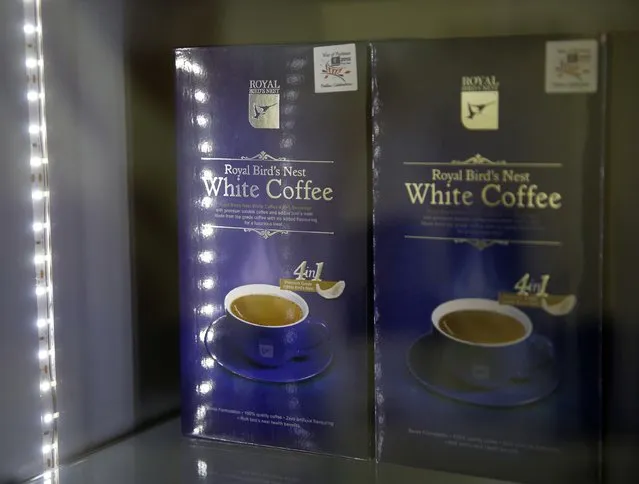
Bird's nest coffee is pictured for sale at an outlet at Kuala Lumpur International Airport 2, outside Kuala Lumpur, February 18, 2015. (Photo by Olivia Harris/Reuters)
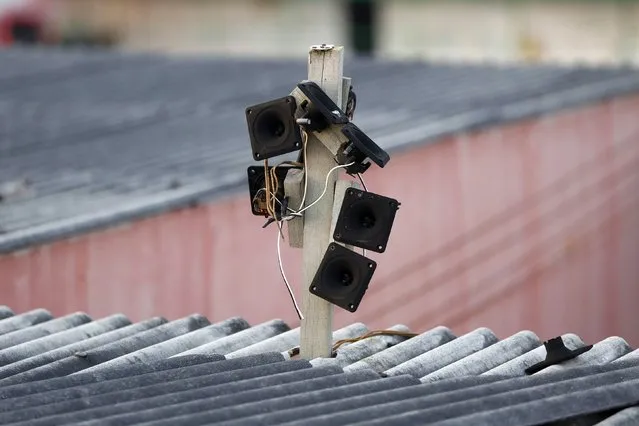
Speakers are pictured on a roof at the Swiftlet Eco Park in Perak, northern Malaysia, February 14, 2015. (Photo by Olivia Harris/Reuters)
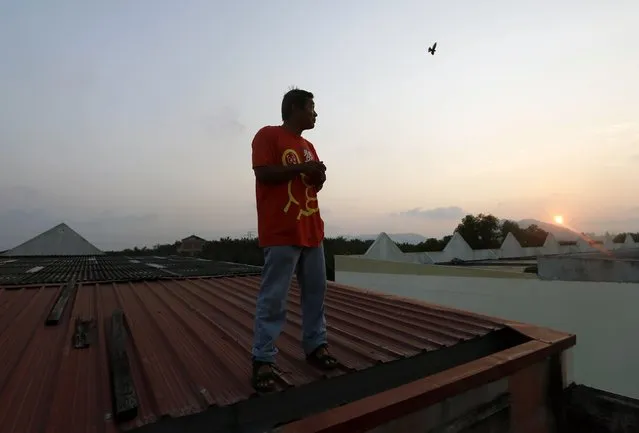
Caretaker Tan Jin Hong looks for swifts on the roof of the Swiftlet Eco Park in Perak, northern Malaysia, February 14, 2015. (Photo by Olivia Harris/Reuters)
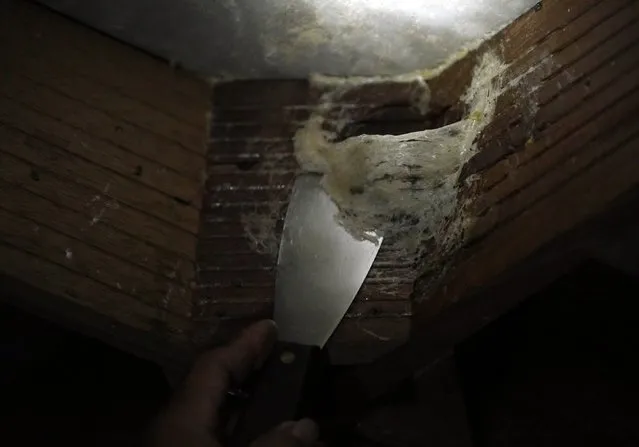
Caretaker Tan Jin Hong harvests a bird's nest at the Swiftlet Eco Park in Perak, northern Malaysia, February 14, 2015. (Photo by Olivia Harris/Reuters)
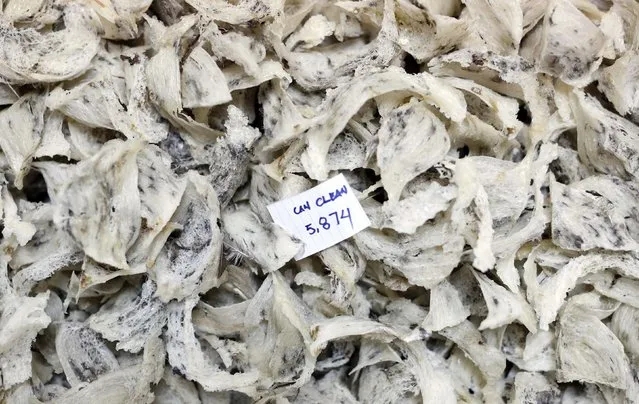
Bird's nests are pictured before the cleaning process at a processing plant in Kuala Lumpur, February 17, 2015. (Photo by Olivia Harris/Reuters)
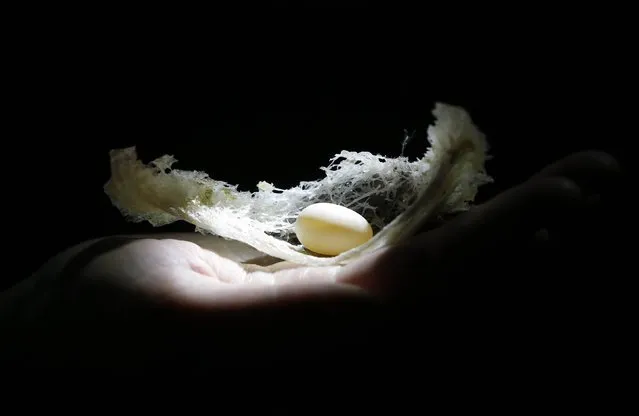
Caretaker Tan Jin Hong poses with a bird's nest and egg at the Swiftlet Eco Park in Perak, northern Malaysia, February 14, 2015. (Photo by Olivia Harris/Reuters)
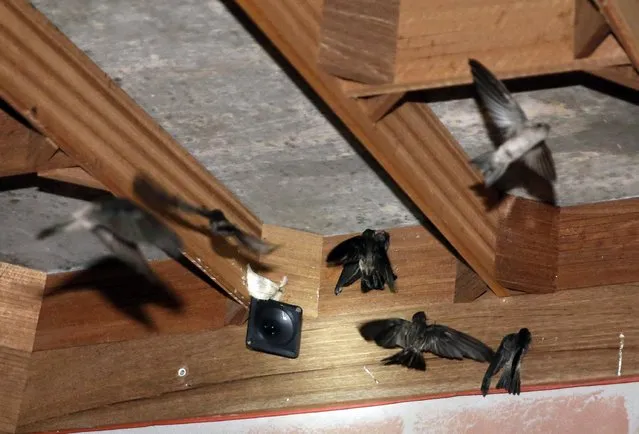
Swifts fly inside a building constructed to farm swiftlet nests at the Swiftlet Eco Park in Perak, northern Malaysia, February 15, 2015. (Photo by Olivia Harris/Reuters)

Caretaker Tan Jin Hong holds a swiftlet tester which plays bird songs to attract swifts at the Swiftlet Eco Park in Perak, northern Malaysia, February 15, 2015. (Photo by Olivia Harris/Reuters)
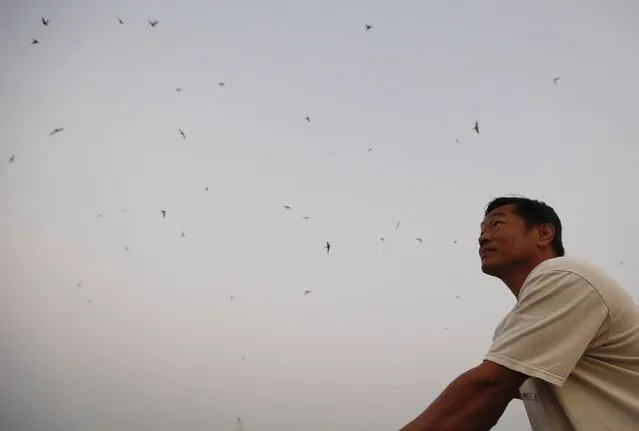
Caretaker Tan Jin Hong looks at swifts attracted by the bird songs played by a machine at the Swiftlet Eco Park in Perak, northern Malaysia, February 15, 2015. (Photo by Olivia Harris/Reuters)
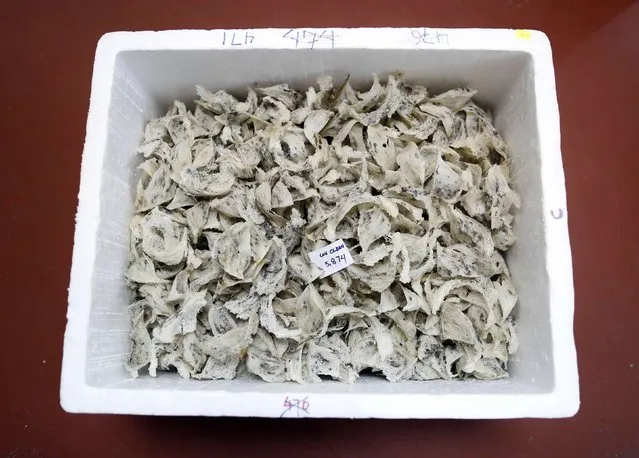
Bird's nests are pictured before the cleaning process at a processing plant in Kuala Lumpur, February 17, 2015. (Photo by Olivia Harris/Reuters)
24 Feb 2015 13:57:00,
post received
0 comments
